
Key Points
- EVs are cheaper to run than any ICE car, but there are still ways to save
- Charging at home is cheapest, reliable and convenient
- Be wise with choosing public EV chargers
Record high inflation, growing interest rates and increasing cost-of-living pressures are making everyday life more difficult. But, if you’re a new or resident electric vehicle owner, there are several ways to save on charging costs.
Despite increasing electricity and fuel prices, the total cost of owning and running an electric car is still significantly cheaper than internal combustion petrol and diesel cars.
Yet, how you recharge your EV isn’t all equal, so here are key clever tips to save even more money on electric car charging.
Calculate EV charging costsCharge at home overnight
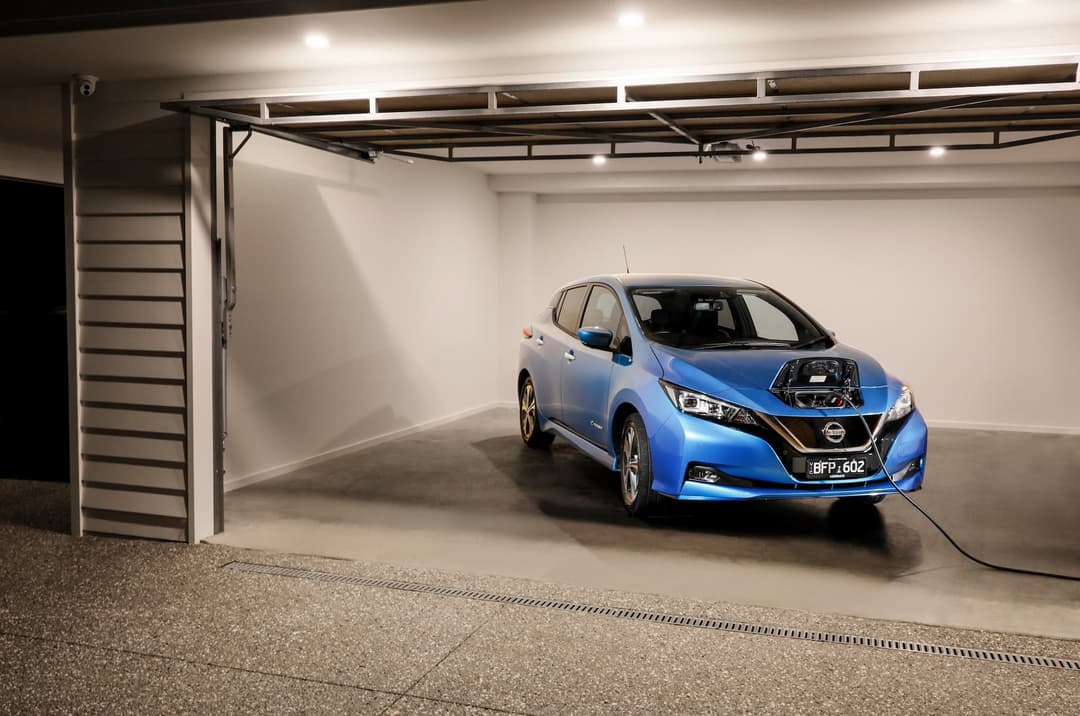
If you have access to a household socket in your garage, driveway or carport, then you can definitely charge your electric car.
If you are on a time-of-use tariff, charging at home overnight on the lowest off-peak electricity tariff is the most convenient, easiest and cheapest way to refill your EV – without the need to worry whether a public EV charger is available or waste time deliberately driving to one.
The cheapest off-peak rate is typically between 12am to 6am and costs as low as $0.06 to $0.08 per kWh depending on your electricity provider and where you live – which is significantly cheaper than most public EV charging stations. Some providers even offer free charging during specific daytime windows (typically 11am-2pm or 12pm-2pm). For the average Australian, charging at off-peak times could save more than $1,000 per year compared to flat rate tariffs.
Additionally, consider switching to a dedicated EV electricity plan from providers like AGL, Engie, OVO Energy, Powershop, Red Energy, and Origin. They offer ultra-low off-peak rates (as low as 6-8c/kWh) or even free charging during certain time periods. However, most require a smart meter and time-of-use tariff, so calculate the sums to see if it makes economic sense for your household.
When plugged into a standard 240-volt, 10-amp AC home plug, it won’t fully top-up most electric car models in the eight hours – but it gives enough driving range for the next day for most Australians, given the average commute is 41km daily.
Most EV models allow owners to schedule the cheapest time period when to start and stop charging, so all you need to do is plug in when at home and the car will do the rest.
Use solar energy
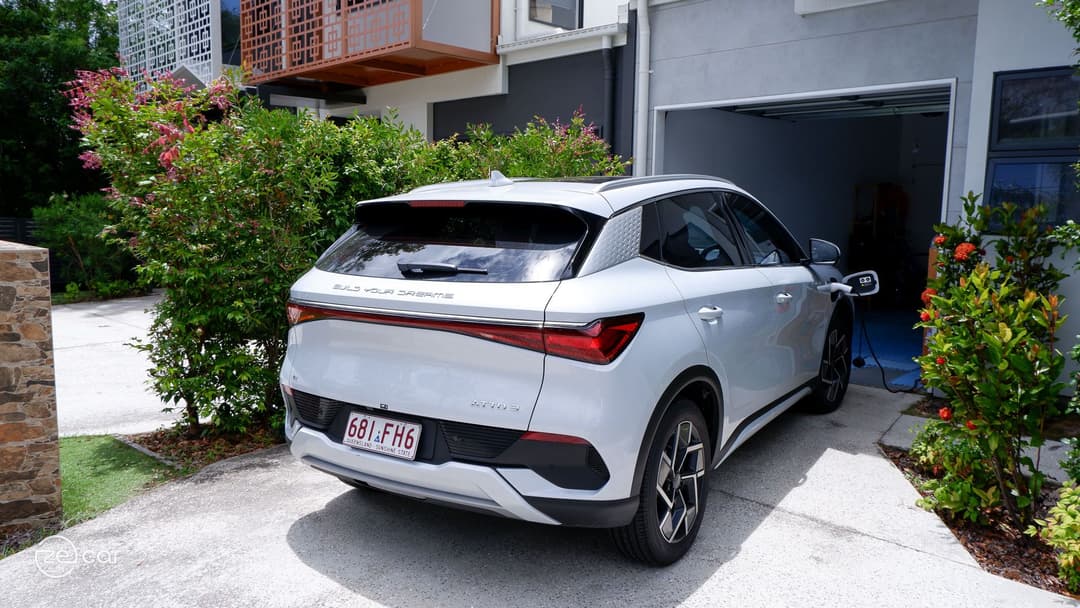
Australia has one of the highest sun exposures and solar panel uptake per capita in the world. So, it makes even more economic sense if you can further take advantage of the sun and charge your electric car using 'free energy'. Charging from solar could save you up to 90 per cent in your energy costs versus the grid based on a feed-in tariff of $0.05/kWh.
Provided you have solar panels installed at your home or workplace, you can plug in your EV during the day when there’s solar generation.
For example, charge when the car isn’t being used like while you’re working from home, you end work and get home in the sunny afternoon, or at your workplace during the day.
All solar panel systems come with a metre reader so you can see how much solar energy is received. Some are available with a mobile app to monitor the generation remotely so you know when best to plug-in your EV while the sun is out.
If you want to ensure 100 per cent of your energy is produced by solar, you should consider a smart EV charger which will calibrate your charger output with the solar production of your panels.
Choose a cheaper public charger
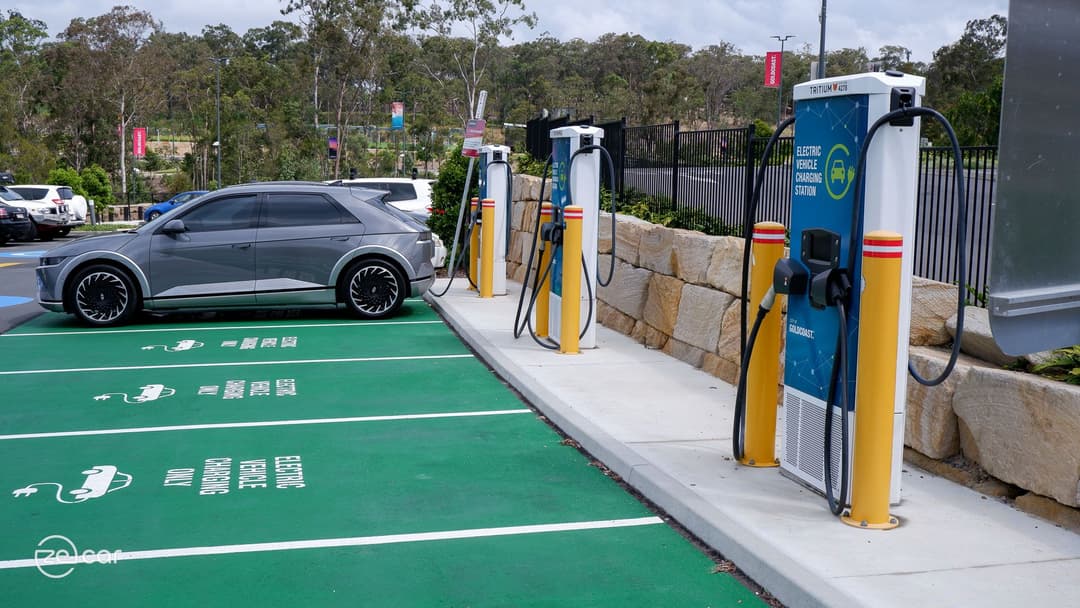
It’s easy to be enticed by convenient Tesla Superchargers and ultra rapid 350kW DC stations, but they are usually pricier.
Tesla's exclusive network is one of the most expensive public charging providers in Australia at $0.50 to $0.69 per kWh for Tesla owners (with variable pricing based on time and demand), and $0.79 per kWh for non-Tesla EVs without a subscription (plus idling fees for overstaying after it's finished charging).
Chargefox fast chargers cost between $0.40 to $0.60 per kWh, while Evie Networks charges between $0.58 to $0.73 per kWh for their ultra rapid chargers. Ampol's AmpCharge costs $0.69 per kWh and BP Pulse charges $0.66 per kWh. Some charging hubs also enforce pricier on-peak rates during the day.
Like with fuel stations, be selective (if you can) with where you recharge your electric car – if you need to rely on public charging infrastructure.
Utilise motoring club discounts
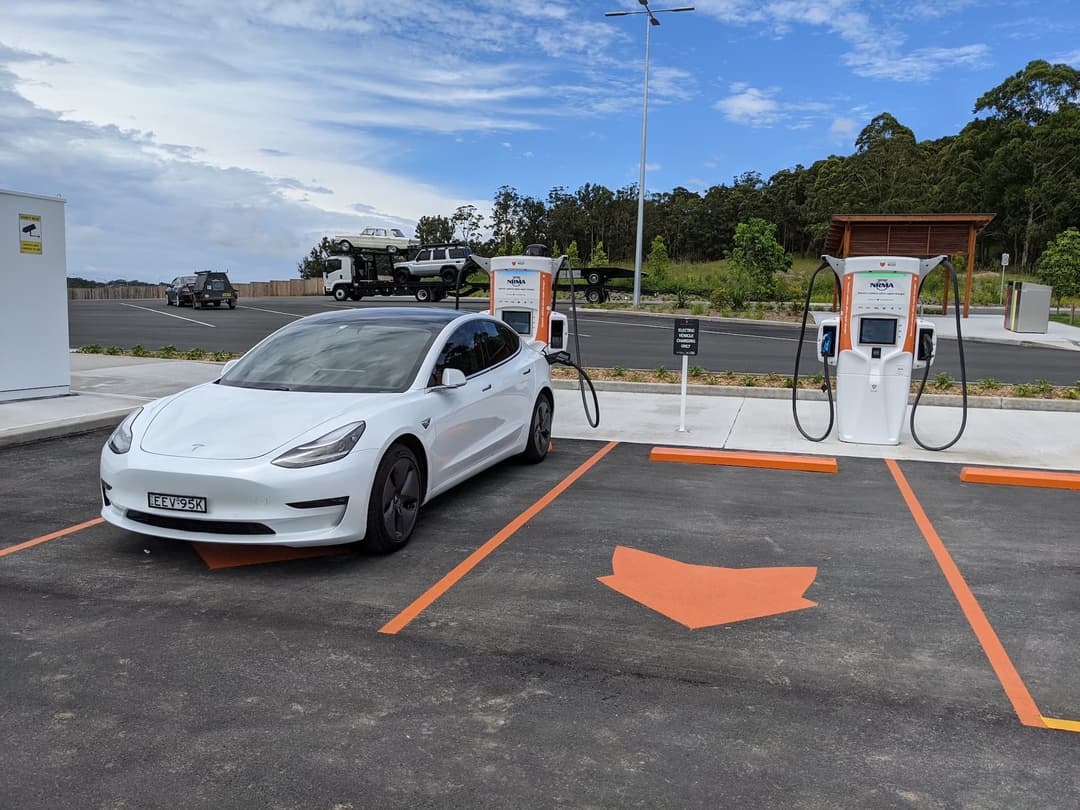
All members of Australian state motoring clubs including the NRMA, RACV, RACQ, RAA, RAC, and RACT benefit from 10 per cent off DC charging sessions with select locations in the Chargefox network, the nation’s largest public charging provider.
EV owners only need to enter their membership number into the Chargefox mobile app and a discount label will be shown on eligible fast and ultra rapid charging stations.
Take advantage charging inclusions
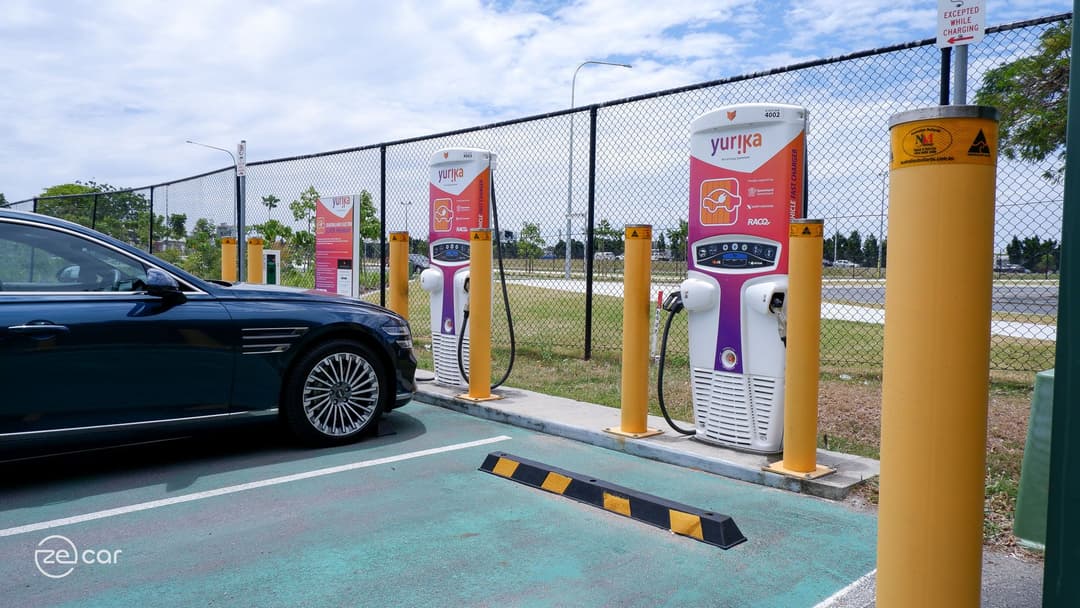
Some electric car models come with charging perks to entice Australians to switch.
All new Genesis EVs come with a choice of either a five-year unlimited subscription to the Chargefox AC and DC network or 7.2kW AC home wall box charger with standard installation fees included.
Chargefox also partners with other car brands to include a free unlimited charging subscription for a certain period:
- BMW i3 and i3S: 250kWh per year
- Nissan Leaf: One-year, then 40 per cent off for following two years (ordered before June 30 2021 only)
- Mercedes-Benz EQB and EQS sedan: One-year
- Mercedes-Benz EQA: Three-years
- Lexus UX300e: Three-years
- Porsche Taycan: Three-years
- Mercedes-Benz EQC: Five-years
- BMW iX, iX3 and i4: Five-years
- Jaguar i-Pace: Five-years
- Audi Q8 e-Tron: Six-years
Furthermore, if your EV is financed with Pepper Money, it includes a 12-month or 2,000kWh free charging subscription to Evie Networks.
Free EV charging
Looking for free EV charging near you? You're in luck. Australia has a growing network of complimentary charging stations that can help reduce your running costs to almost zero. From shopping centres to hotels, there are numerous locations offering free electric vehicle charging stations for drivers. Below, we'll show you where to find these free electric car charging stations and how to make the most of them.
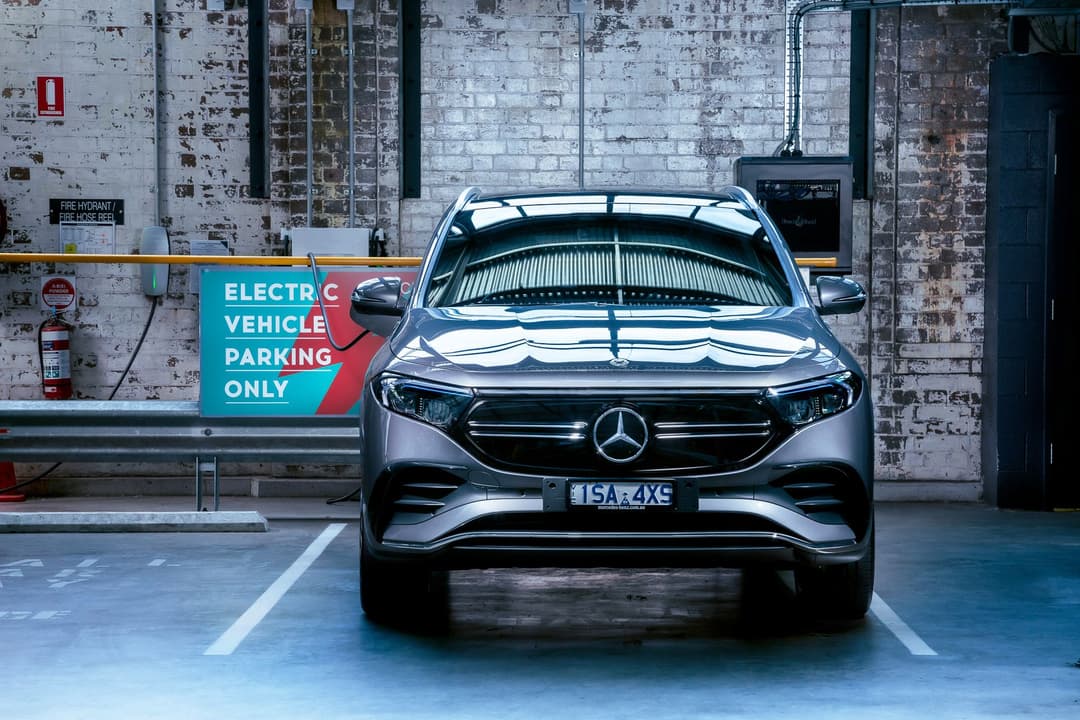
🛍️Shopping centres and businesses
Several businesses, universities, and shopping centres or markets offer free charging to its customers and visitors. These may include slow AC and fast DC charging points.
Of course, it's courtesy to support the business in exchange. For example, a three-hour shopping trip could provide more than 50 per cent charge on a Tesla Model 3 RWD when connected to a 11kW AC charger.
However, you should consider if deliberately driving there is worth the range consumed (if it's out of your local area or commute) and the likely time needed to queue for the free charger (as it's bound to be popular). The best way to check if there are free electric vehicle charging facilities is:
- Search using the Plugshare app;
- Check the website of the business, university or shopping centre; or
- Search using Google Maps and filter "electric vehicle charging"
🏨Hotels and motels
Hotels, motels and Airbnb hosts are increasingly providing EV destination charging facilities for guests. These can range from a standard powerpoint outlet to a Level 2 charge point capable of 22kW AC power.
If you plan on parking your car overnight, why not charge it at the same time and take advantage of free charging (or for a small fee)? It could save you $20 to $40 for a full charge compared to using public fast chargers. The best way to check if your accommodation provides electric vehicle charging facilities is:
- Search using the Plugshare app;
- Check the website/listing or contact the accommodation provider; or
- Search using Google Maps and filter "electric vehicle charging"
⚡️Jolt charging stations
Every Jolt charging station provides up to 7kWh of free charging per day, with standard rates applying thereafter. This equates to 30 to 40 km of range enough to cover the daily distance of most Australian drivers.
🔋NRMA charging stations
All NRMA fast DC chargers operated by Chargefox in New South Wales with some in Victoria and South Australia are currently free to all EV owners, without any limits. However, the state motoring club will soon make free charging exclusive to members only.
About the author
Stay up to date with the latest EV news
- Get the latest news and update
- New EV model releases
- Get money savings-deal

